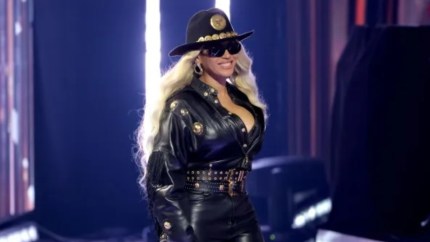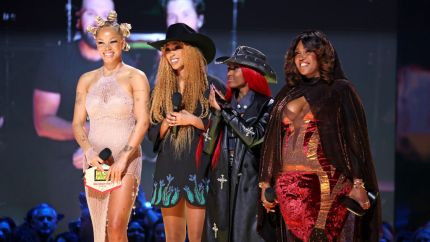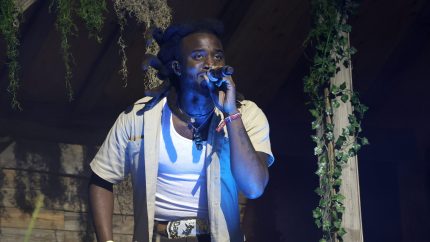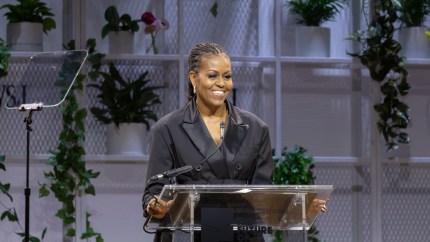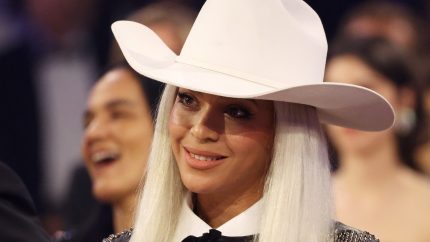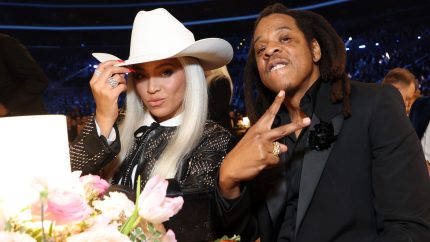Country music pioneer Alice Randall gets to the roots of the genre in ‘My Black Country’
Author Alice Randall, the first Black woman to write a No. 1 country hit, talks Beyoncé, Black country's Mount Rushmore, and her new book, "My Black Country."
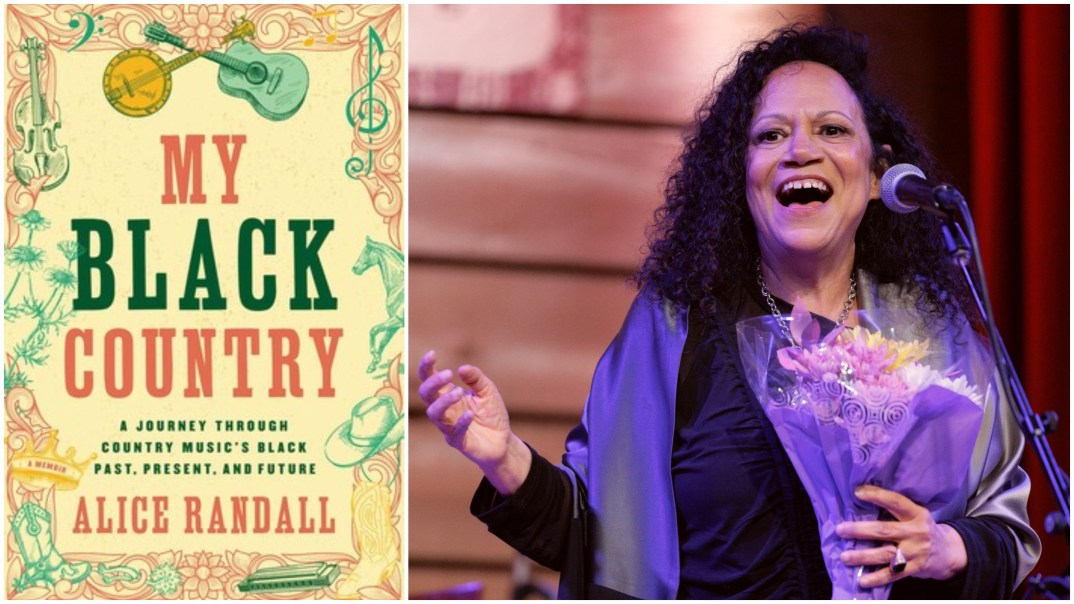
Filmmaker Ken Burns’ “Country Music” — 2019’s eight-part, 16-hour docuseries about the origins and history of country music — inevitably includes details about the Black contributions to what singer Kris Kristofferson calls “the white man’s soul music.” Viewers learn that the banjo (one of country music’s principal instruments) has African origins; Black blues guitarist Gus Cannon taught Johnny Cash how to play; Louis Armstrong played on the song that put country legend Jimmie Rodgers on the map, “Blue Yodel #9,” and so forth. As the first Black woman to write a No. 1 country hit, Alice Randall, award-winning novelist and longtime songwriter, did talking-head duty in “Country Music.” Now, she expands on being a Black artist in the genre and more in a new cultural memoir, “My Black Country: A Journey Through Country Music’s Black Past, Present, and Future.”
Following an unprecedented moment in which Beyoncé scored the top country album in America (the first Black woman in history to ever do so) and the recent chart-topping resurgence of Tracy Chapman’s “Fast Car” via country star Luke Combs, theGrio spoke with Alice Randall about her opinions on “Cowboy Carter,” Black country music’s pioneers, her own journey from Detroit to Nashville, and more.
Editor’s note: The following conversation has been edited for length and clarity.
How does a Motown-raised, Harvard-educated Black woman become a Nashville-based country music songwriter?
I was born in Detroit in May 1959, the same year as Motown Records, in the same place. My family knew the Gordy family. Like other people know about teachers and policemen, I knew as a little girl that being a song publisher and starting a record label was a business and being a songwriter was an occupation because I knew songwriters.
I had my first cut two years after I moved to Nashville, before I [signed with] Sony/ATV Tree. It was the Forester Sisters’ “Reckless Night,” a B-side of a No. 1 single. I had “Girls Ride Horses Too” [by Judy Rodman], which is a Top 10 song, and I had “Many Mansions” [by Moe Bandy], which was a Top 40. I was having success. But I also wanted to make a foray into Black musical country-westerns; to explore that relationship between movies and country music more in a Black space. To do that, I needed more money than what a big publisher could offer me. Trying to break into Hollywood was not something I would be able to do on my own.
Hollywood has released scant few Black Westerns: “The Harder They Fall,” “Django Unchained,” “Posse.” How was your Hollywood experience?
My first project that I really tried to take out to Hollywood did get optioned by Quincy Jones and Oprah Winfrey’s company: “Mother Dixie,” which had a whole album of country songs to go with it. In the book, I say it’s in some ways my greatest artistic achievement — and it never got released. … The demos are actually quite remarkable. That’s one of the next things I wanna do on the agenda, is get that released. And we’re taking a look again at dropping that original screenplay to Hollywood. The world is changing. [Director] Reggie Hudlin just reached out to me and said, “Do you have that ‘Mother Dixie’ screenplay?!” [laughter]
What are your thoughts on “Cowboy Carter”?
I think “Cowboy Carter” is an extraordinary achievement. In terms of popular music and country music, it is a high watermark for both genres. The precedent would be when Ray Charles dropped “Modern Sounds in Country and Western Music” in 1963, which was very important in the country music space and the history of popular recorded music. I think potentially this moment eclipses that because music has become more complex.
This is a very rich album. In some ways that are not just hyperbole, “Cowboy Carter” is akin to Shakespeare. It contains multitudes — a deep, elastic text that a wide range of people can find themselves reflected in. And it’s entertaining on the surface but rewards the deepest engagement. Those are the ways in which it’s like Shakespeare to me.
As a Black country music scholar, what are your favorite tracks?
“16 Carriages,” I think, is in conversation with “Sixteen Tons,” a work song [by Tennesse Ernie Ford]. It’s in conversation with “Strawberry Wine” [by Deana Carter], about loss and innocence. It’s in conversation with my own “XXX’s and OOO’s (An American Girl)” [recorded by Trisha Yearwood], about the balance between love and money. It’s also elegiac. It’s in conversation with [the Christian hymn] “Will the Circle Be Unbroken,” about death. But it’s its own extraordinary, original work.
I also think “Texas Hold ’Em” is a shake-your-booty dance tune not unlike [Billy Ray Cyrus’] “Achy Breaky Heart” or [Brooks & Dunn’s] “Boot Scootin’ Boogie” in country music, but it’s actually a very deep song. The whole point is, life is not a game of cards. I think country music has four basic themes: Life is hard; God is real; the road, family and liquor are significant compensations; and the past is better than the present. But in Black country’s “the past is better than the present,” it’s an earlier part of your childhood when you were sheltered by parents or at an earlier part of a relationship. But the honky-tonk, the road, and the family are all in “Texas Hold ’Em.”
In “My Black Country,” I talk about the importance of [Nancy Sinatra’s] “These Boots Are Made for Walkin’ ” as a link to the world of country. That’s right there in my book — and then Beyoncé has sampled “These Boots Are Made for Walkin’ ” [on her song “Ya Ya”]! I also think [Beyoncé’s interpretation of the Beatles’ classic] “Blackbiird” is very important, giving an embodied lesson on what it takes to make a pop-folk song, which is Paul McCartney, and turn it into a country song by adding Black voices, aesthetics and Black gospel sounds. But it also points to the Stoney Edwards song “Blackbird (Hold Your Head Up High)” from 1976. I don’t think that’s a coincidence. Stoney Edwards is a Black country artist.
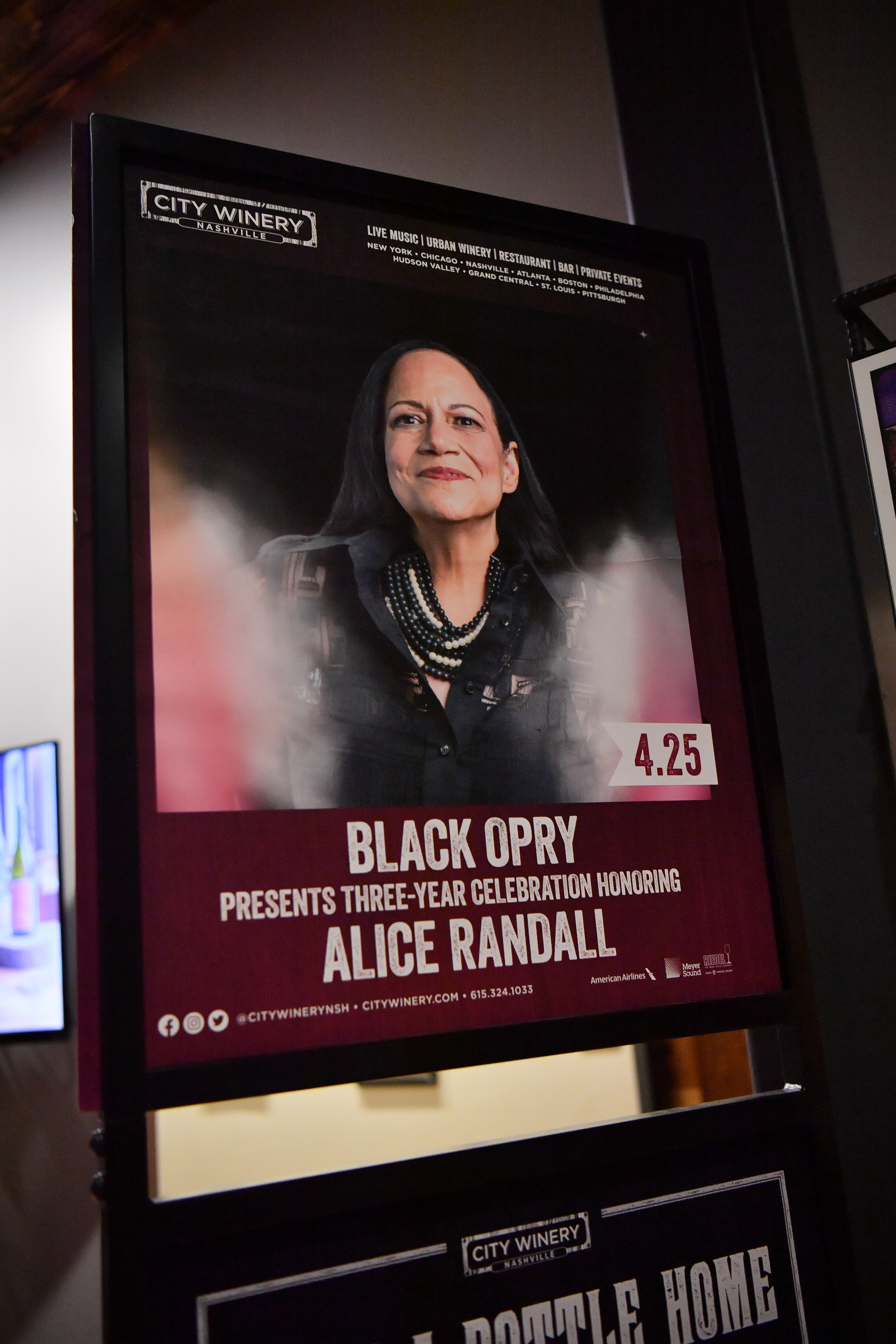
(Photo by Jason Davis/Getty Images)
In “My Black Country,” you give props to DeFord Bailey, Lil Hardin, Charley Pride, Herb Jeffries and Lesley “Eslie” Riddle (also known as Esley Riddle) as a Mount Rushmore of Black country music. What were their main contributions?
I consider DeFord Bailey a father of Black country music. He is the godfather of all country music. He was the Grand Ole Opry’s first superstar. He helped launch the careers of Acuff-Rose and Bill Monroe, let alone the career of Charley Pride. And he [was] the first Black member of the Grand Ole Opry. He was an amazing harmonica player. He was a political artist in ways that people don’t often recognize. In 1927, he is gonna play the first sounds we hear after we first hear the words “Grand Ole Opry.” And he’s a third-generation Black hillbilly musician. He doesn’t come out of nowhere; he comes out of his own Black family to become the first superstar of country music.
Lil Hardin Armstrong is the mama of Black country to me. She will play on the first million-selling country single, [ Jimmie Rodgers’] “Blue Yodel #9.” She will play on every bar of that song, and she will be completely erased from the history of that song from the day it was recorded in 1930 in Los Angeles because she was a Black woman. Three geniuses played on that record: Louis Armstrong, Lil Hardin and Jimmie Rodgers. Only one person’s name got put on the record.
Charley Pride is the first Black country artist to be recognized as a superstar by the majority of the country world. DeFord Bailey was a superstar, but he wasn’t 100% recognized as such. Charley Pride would be [the Country Music Awards’] Entertainer of the Year in 1971, and when I arrived in Nashville in 1983, he’d already gone up to No. 1 on the country charts 29 times.
Herb Jeffries, “the Bronze Buckaroo” — people need to know that in the ’30s and the ’40s, a Black man was starring in, producing and masterminding Black country and western movies. He, at one point, was so famous that Herbie Hancock was allegedly named “Herbie” for Herb Jeffries. He filmed “The Bronze Buckaroo” movies on a Black-owned dude ranch in California. He was a true Marcus Garvey figure in the world of Black country. He did business with other Black people; he employed them and he is a monument to the real 19th-century and 20th-century Black cowboys that he portrayed in his films.
Traditionally, people say the mama of country [music] is the Carter Family … Eslie Riddle is an extremely important musician who taught songs and guitar techniques to the Carter Family. He is a foundation of country music that’s been erased, pushed off to the side, [and] had so much of his intellectual property, I believe, stolen from him.
Recommended Stories
Does Nashville have a resistance to Black country artists?
I call it cultural redlining. I think there are layers of it. Music Row and radio are a small town; small towns are smaller for girls, but they’re even smaller for Black girls. … Up until Beyoncé, no Black woman had ever achieved that [level of success in country music]. The cultural redlining is quite intersectional, very much particularly focused on excluding Black women from these spaces.
All women have trouble on country radio historically, even Dolly Parton and Loretta Lynn. Cultural redlining is not just radio play, because now songs can be broken outside of radio. It’s [who is considered worthy of] investment in the first place. It’s putting together a team — marketing, promotion, clothing, the publishing deals — that allows someone to develop as an artist. It’s the belief that it can happen.
One of the things that’s so interesting that changes it is the Beyoncé moment. I’ve been here 41 years; what we would hear is, “Bring me the Black woman who sings well enough, who’s attractive enough, who’s disciplined enough, who has the right songs, and I will make her a star.” The implication was that all these women who were arriving weren’t adequate in some way, which I don’t think was the case. Two Black women who should have had number ones a long time ago are Rissi Palmer and Rhiannon Giddens. They’re both extraordinary singers, great songwriters, beautiful by traditional American standards. There’s nothing they were missing. To me, they were culturally redlined out.
Beyoncé evaded the cultural redlining. She made her own assault on the citadel and proved that it can be done.
What kind of effect will “Cowboy Carter” have on the country music industry?
Only time will tell. But there is a difference between zero and one. If something has never been done, many people will believe it is impossible. Once it has been done, you are far closer to “again.” It’s gonna make it more possible for Black artists, particularly Black women artists, to pursue this and think they can do it. They’re also seeing this large Black audience that has always existed becoming visible in new ways. This large audience of white, Asian, Indigenous and Black people are listening to “Cowboy Carter” and making their presence known all over social media. This is a global event. It is very clear to anyone looking that people all over the world are ready to listen to country music sung by a Black woman.
Now, are they willing to listen to Beyoncé but not someone else? We already know people are downloading [the album’s featured Black female country singers] Linda Martell, Brittney Spencer, [and] Tanner Adell; they are seeing a Beyoncé bounce. I think Beyoncé’s album has started a global conversation. I anticipate that this is the summer of Black country, that all of America comes to understand how rooted in Black genius the best of country is.
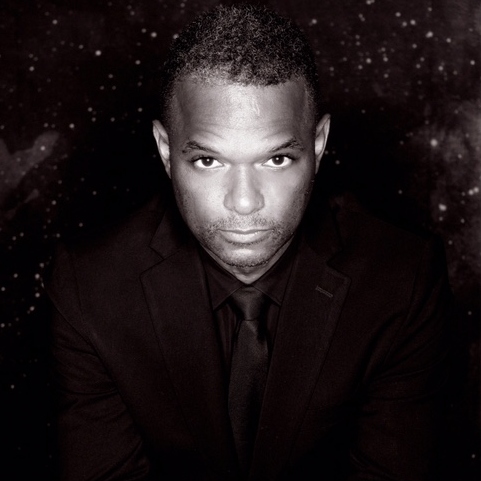
Miles Marshall Lewis (@MMLunlimited) is an author and Harlem-based cultural critic whose work has appeared in The New York Times Magazine, GQ, Rolling Stone and many other outlets. Lewis is currently finishing a cultural biography of comedian Dave Chappelle, his follow-up to “Promise That You Will Sing About Me: The Power and Poetry of Kendrick Lamar.“
